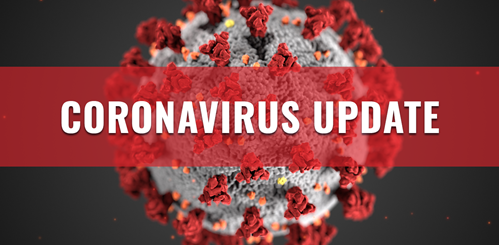RISE examines this week’s regulatory headlines.
Some telehealth provisions may become permanent but unclear which ones
The Centers for Medicare & Medicaid Services (CMS) has rollbacked telehealth regulations to expand care to seniors during the global pandemic and make it easier for Medicare and Medicaid beneficiaries to get tested for COVID-19. The changes cover telehealth visits during the pandemic and pay providers the same rate as in-person visits. But during a May 26 press call, CMS Administrator Seema Verma indicated that President Donald Trump wants to explore extending telehealth benefits more widely beyond the pandemic.
“Even before the coronavirus, we had already made efforts to extend telehealth benefits to seniors. We had increased the amount of services that qualify for telehealth, and even provided small, kind of, short visits over the phone or through Skype, even before the coronavirus. So we’re looking at all of the waivers that we provided. We’re evaluating them to determine whether they should be extended past the coronavirus. So, we’re going through that process now,” she said. Furthermore, Verma said the administration is in the process of rulemaking, and some of the provisions that were extended on a temporary basis will be made permanent.

CMS offers new payment model flexibilities for COVID-19
In a Health Affairs blog post, Verma announced CMS is providing new flexibilities and adjustments to current and future CMS Innovation Center Models to address the COVID-19 public health emergency. The changes include adjustment to various deadlines for existing models and implementation date for new models to give providers additional time to transition to value-based care. The agency is also tweaking payment methodologies, including modifying cost targets and benchmarks to adjust for the response to COVID-19 so that providers aren’t at risk for costs solely due to the pandemic. Those changes will impact the Next Generation ACO and Medicare ACO Track 1+ Model. For example, the Next Generation ACO will extend through December 2021. CMS has removed episodes of care for treatment of COVID-19, and will require retrospective regional trend, rather than prospective, for 2020. The agency will also remove the episodes of care for treatment of COVID-19 in the Medicare ACO Track 1+ Model and require participants to monitor impact on 2020 quality reporting. CMS will also extend the agreement for one year through December 2021. Click here to see a chart that lists all the changes for all models.
HHS provides an additional $250M to help health care systems respond to pandemic
The U.S. Department of Health and Human Services (HHS) Office of the Assistant Secretary for preparedness and Response announced it will provide an additional $250 million in aid to U.S. health care systems treating patients and responding to the COVID-19 pandemic. As authorized by the Coronavirus Aid, Relief, and Economic Security (CARES) Act, HHS has now provided a total of $350 million to health care systems for pandemic response, including $100 million released in April 2020.The funds will support hospitals and other health care entities to train workforces, expand telemedicine and the use of virtual healthcare, procure supplies and equipment, and coordinate effectively across regional, state and jurisdictional, and local health care facilities to respond to COVID-19.
Congressional leaders say Medicaid providers have yet to receive their share of COVID-19 relief fund
A bipartisan group of House and Senate committee leaders called on the HHS to provide a timeline for when it will distribute funding from the $175 billion COVID-19 relief fund to Medicaid providers. In a June 3 letter, the chairs and ranking members of the committees of jurisdiction over the Medicaid program wrote that the delay in disbursement to Medicaid-dependent providers could result in long-term financial hardship and hamper their ability to serve as essential providers during the pandemic and beyond.
While HHS has said publicly that it is committed to distribute funds to Medicaid providers who may not have Medicare claims, the lawmakers wrote they have yet to see progress. “Many of these providers are safety net providers that operate on thin profit margins, if at all. The COVID-19 pandemic has strained their already scarce resources, threatening their ability to keep their doors open in the midst of a declared public health emergency,” the letter said. The lawmakers demanded answers by June 10 for a timeline for the release of the funds, how it plans to release the funds to Medicaid-dependent providers, and the factors that have contributed to the delays in fund disbursement.
